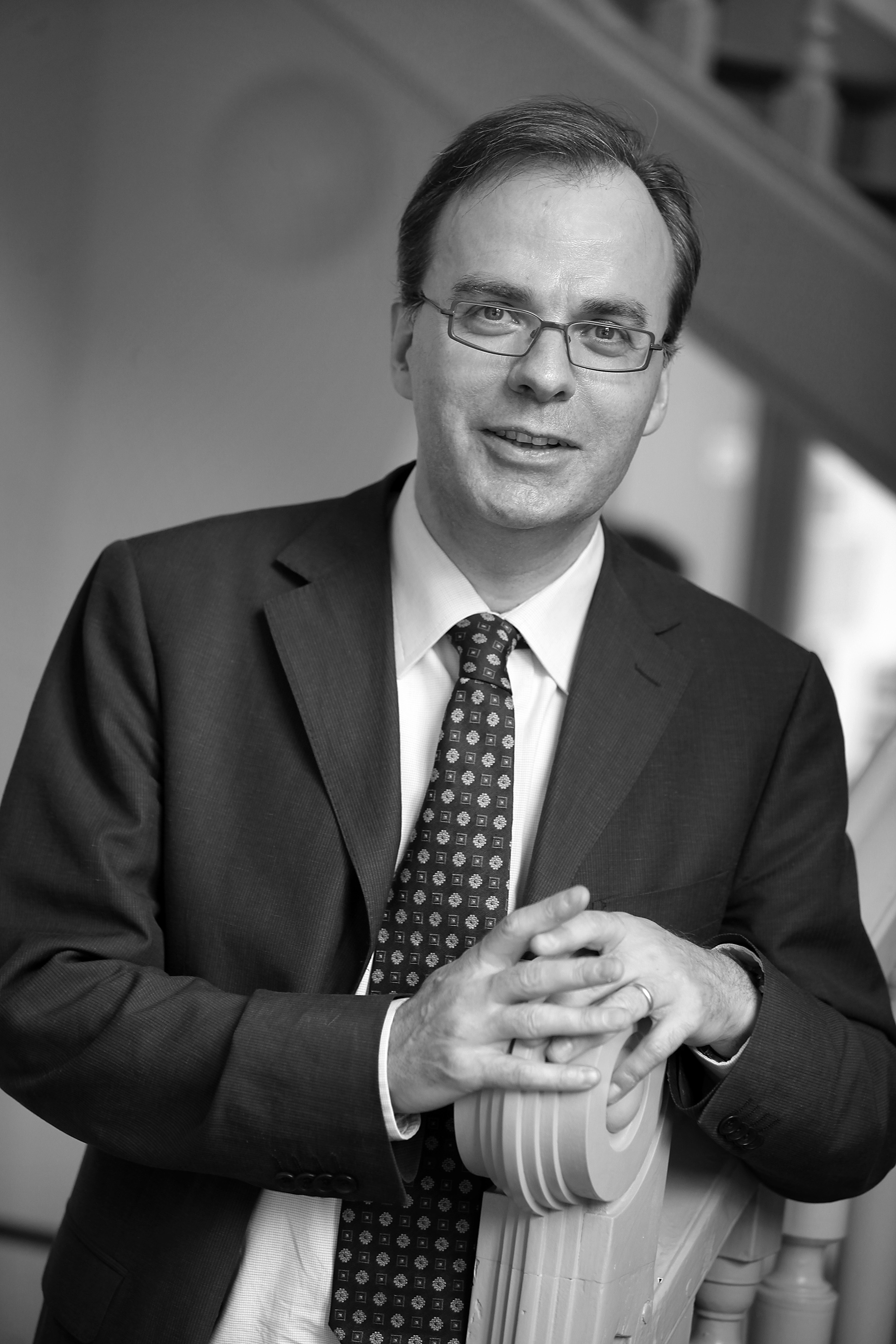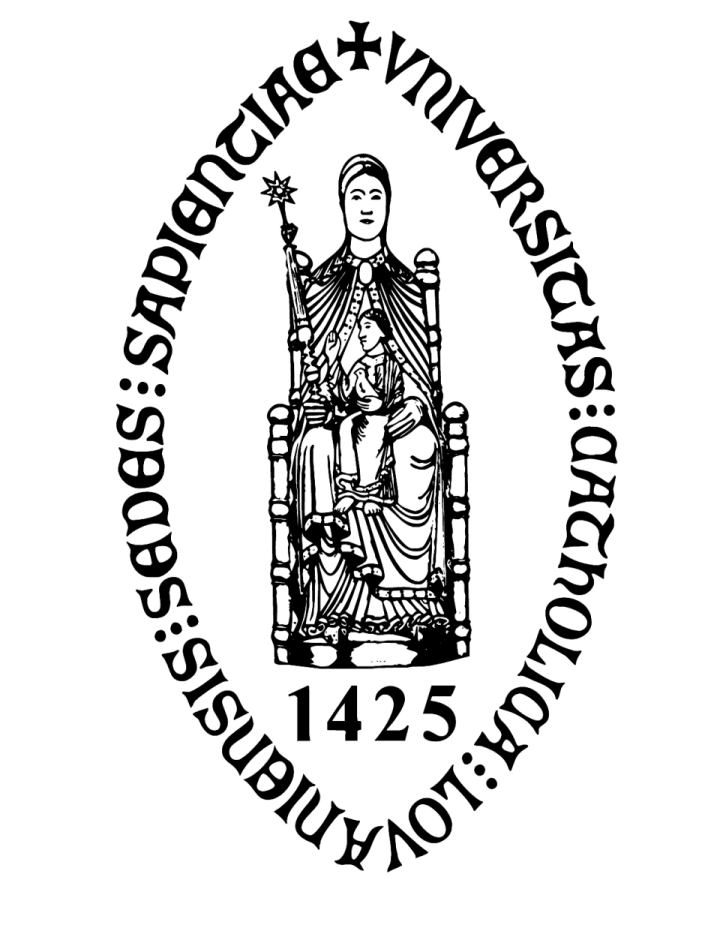|
Didier Pollefeyt
Didier Pollefeyt (Menen, November 18, 1965) is a Belgian catholic theologian, full professor at the Faculty of Theology, Catholic University of Leuven, Faculty of Theology and Religious Studies and vice rector for education policy at the Katholieke Universiteit Leuven. Research career After gaining the degree of license in the Religious Studies (1988) and Theology (1991) Pollefeyt obtained his doctoral degree in Theology (promotor: prof. Roger Burggraeve) with a dissertation on ethics after Auschwitz (1995). Thereafter he became instructor (2000), associate instructor (2002), associate professor (2005) and full professor (2008) at the Faculty of Theology, Katholieke Universiteit Leuven. Since 1986 his research focuses on the holocaust as a challenge for ethics, interreligious dialogue and education. The research activities of Didier Pollefeyt are situated around 5 areas. # The ethical and theological analysis of the Holocaust and the development of the foundations of ethics an ... [...More Info...] [...Related Items...] OR: [Wikipedia] [Google] [Baidu] |
Didier Pollefeyt
Didier Pollefeyt (Menen, November 18, 1965) is a Belgian catholic theologian, full professor at the Faculty of Theology, Catholic University of Leuven, Faculty of Theology and Religious Studies and vice rector for education policy at the Katholieke Universiteit Leuven. Research career After gaining the degree of license in the Religious Studies (1988) and Theology (1991) Pollefeyt obtained his doctoral degree in Theology (promotor: prof. Roger Burggraeve) with a dissertation on ethics after Auschwitz (1995). Thereafter he became instructor (2000), associate instructor (2002), associate professor (2005) and full professor (2008) at the Faculty of Theology, Katholieke Universiteit Leuven. Since 1986 his research focuses on the holocaust as a challenge for ethics, interreligious dialogue and education. The research activities of Didier Pollefeyt are situated around 5 areas. # The ethical and theological analysis of the Holocaust and the development of the foundations of ethics an ... [...More Info...] [...Related Items...] OR: [Wikipedia] [Google] [Baidu] |
Menen
Menen (; french: Menin ; vls, Mêenn or ) is a city and municipality located in the Belgian province of West Flanders. The municipality comprises the city of Menen proper and the towns of Lauwe and Rekkem. The city is situated on the French/Belgian border. On January 1, 2006, Menen had a total population of 32,413. The total area is 33.07 km² which gives a population density of 980 inhabitants per km². The city of Menen gives its name to the Menin Gate in Ypres, which is a monument to those killed in World War I. The gate is so called as the road from that gate is the road to Menen. The town hall of Menen, with its large belfry, was inscribed on the UNESCO World Heritage List in 1999 as part of the Belfries of Belgium and France site, because of its civic importance and architecture. History Menen's position near the French border led to many sieges in the history of the city. There were as many as 22 sieges between 1579 and 1830. The city was part of France between 1 ... [...More Info...] [...Related Items...] OR: [Wikipedia] [Google] [Baidu] |
Catholic Theologian
Catholic theology is the understanding of Catholic doctrine or teachings, and results from the studies of theologians. It is based on canonical scripture, and sacred tradition, as interpreted authoritatively by the magisterium of the Catholic Church. This article serves as an introduction to various topics in Catholic theology, with links to where fuller coverage is found. Major teachings of the Catholic Church discussed in the early councils of the church are summarized in various creeds, especially the Nicene (Nicene-Constantinopolitan) Creed and the Apostles' Creed. Since the 16th century the church has produced catechisms which summarize its teachings, most recently in 1992. The Catholic Church understands the living tradition of the church to contain the essentials of its doctrine on faith and morals and to be protected from error, at times through infallibly defined teaching. The church believes in revelation guided by the Holy Spirit through sacred scripture, devel ... [...More Info...] [...Related Items...] OR: [Wikipedia] [Google] [Baidu] |
Faculty Of Theology, Catholic University Of Leuven
The Leuven Faculty of Theology was a branch of the Catholic University of Leuven, founded in 1834 in Mechelen by the bishops of Belgium as the Catholic University of Belgium, that moved its seat to the town of Leuven in 1835, changing its name to Catholic University of Leuven.''Encyclopédie théologique'', tome 54, ''Dictionnaire de l'histoire universelle de l'Église'', Paris : éd. J.P. Migne, 1863, ''sub verbo'' ''Grégoire XVI'', col. 1131 : "Après sa séparation de la Hollande en 1830, la Belgique libérale a vu son Église jouir d'une véritable indépendance. Les évêques s'assemblent en conciles, communiquent avec le Saint-Siège en toute liberté. Sur l'article fondamental des études, ils ont fondé l'université catholique de Louvain, où les jeunes Belges vont en foule puiser aux sources les plus pures toutes les richesses de la science". And : Edward van Even, ''Louvain dans le passé et dans le présent'', Louvain, 1895, p. 606 : "''Par lettre collective du 14 nove ... [...More Info...] [...Related Items...] OR: [Wikipedia] [Google] [Baidu] |
Katholieke Universiteit Leuven
KU Leuven (or Katholieke Universiteit Leuven) is a Catholic research university in the city of Leuven, Belgium. It conducts teaching, research, and services in computer science, engineering, natural sciences, theology, humanities, medicine, law, canon law, business, and social sciences. In addition to its main campus in Leuven, it has satellite campuses in Kortrijk, Antwerp, Ghent, Bruges, Ostend, Geel, Diepenbeek, Aalst, Sint-Katelijne-Waver, and in Belgium's capital Brussels. KU Leuven is the largest university in Belgium and the Low Countries. In 2017–18, more than 58,000 students were enrolled. Its primary language of instruction is Dutch, although several programs are taught in English, particularly graduate and postgraduate degrees. KU Leuven consistently ranks among the top 100 universities in the world by major ranking tables. As of 2021, it ranks 42nd in the ''Times Higher Education'' rankings, 70th according QS World University Rankings, 87th according to the Sha ... [...More Info...] [...Related Items...] OR: [Wikipedia] [Google] [Baidu] |
Roger Burggraeve
Roger is a given name, usually masculine, and a surname. The given name is derived from the Old French personal names ' and '. These names are of Germanic origin, derived from the elements ', ''χrōþi'' ("fame", "renown", "honour") and ', ' ("spear", "lance") (Hrōþigēraz). The name was introduced into England by the Normans. In Normandy, the Frankish name had been reinforced by the Old Norse cognate '. The name introduced into England replaced the Old English cognate '. ''Roger'' became a very common given name during the Middle Ages. A variant form of the given name ''Roger'' that is closer to the name's origin is ''Rodger''. Slang and other uses Roger is also a short version of the term "Jolly Roger", which refers to a black flag with a white skull and crossbones, formerly used by sea pirates since as early as 1723. From up to , Roger was slang for the word "penis". In ''Under Milk Wood'', Dylan Thomas writes "jolly, rodgered" suggesting both the sexual double entend ... [...More Info...] [...Related Items...] OR: [Wikipedia] [Google] [Baidu] |
Auschwitz
Auschwitz concentration camp ( (); also or ) was a complex of over 40 concentration and extermination camps operated by Nazi Germany in occupied Poland (in a portion annexed into Germany in 1939) during World War II and the Holocaust. It consisted of Auschwitz I, the main camp (''Stammlager'') in Oświęcim; Auschwitz II-Birkenau, a concentration and extermination camp with gas chambers; Auschwitz III-Monowitz, a labor camp for the chemical conglomerate IG Farben; and dozens of subcamps. The camps became a major site of the Nazis' final solution to the Jewish question. After Germany sparked World War II by invading Poland in September 1939, the ''Schutzstaffel'' (SS) converted Auschwitz I, an army barracks, into a prisoner-of-war camp. The initial transport of political detainees to Auschwitz consisted almost solely of Poles for whom the camp was initially established. The bulk of inmates were Polish for the first two years. In May 1940, German criminals brought to t ... [...More Info...] [...Related Items...] OR: [Wikipedia] [Google] [Baidu] |
Holocaust Theology
Holocaust theology is a body of theological and philosophical debate concerning the role of God in the universe in light of the Holocaust of the late 1930s and early 1940s. It is primarily found in Judaism. Jews were killed in higher proportions than other groups; some scholars limit the definition of the Holocaust to the Jewish victims of the Nazis as Jews alone were targeted for the Final Solution. Others include the additional five million non-Jewish victims, bringing the total to about 11 million. One third of the total worldwide Jewish population were killed during the Holocaust. The Eastern European Jewish population was particularly hard hit, being reduced by ninety percent. While a disproportionate number of Jewish religious scholars were killed, more than eighty percent of the world's total, the perpetrators of the Holocaust did not merely target religious Jews. A large percentage of the Jews killed both in Eastern and Western Europe were either nonobservant or had not rec ... [...More Info...] [...Related Items...] OR: [Wikipedia] [Google] [Baidu] |
1965 Births
Events January–February * January 14 – The Prime Minister of Northern Ireland and the Taoiseach of the Republic of Ireland meet for the first time in 43 years. * January 20 ** Lyndon B. Johnson is Second inauguration of Lyndon B. Johnson, sworn in for a full term as President of the United States. ** Indonesian President Sukarno announces the withdrawal of the Indonesian government from the United Nations. * January 30 – The Death and state funeral of Winston Churchill, state funeral of Sir Winston Churchill takes place in London with the largest assembly of dignitaries in the world until the 2005 funeral of Pope John Paul II. * February 4 – Trofim Lysenko is removed from his post as director of the Institute of Genetics at the Russian Academy of Sciences, Academy of Sciences in the Soviet Union. Lysenkoism, Lysenkoist theories are now treated as pseudoscience. * February 12 ** The African and Malagasy Republic, Malagasy Common Organization ('; OCA ... [...More Info...] [...Related Items...] OR: [Wikipedia] [Google] [Baidu] |
Living People
Related categories * :Year of birth missing (living people) / :Year of birth unknown * :Date of birth missing (living people) / :Date of birth unknown * :Place of birth missing (living people) / :Place of birth unknown * :Year of death missing / :Year of death unknown * :Date of death missing / :Date of death unknown * :Place of death missing / :Place of death unknown * :Missing middle or first names See also * :Dead people * :Template:L, which generates this category or death years, and birth year and sort keys. : {{DEFAULTSORT:Living people 21st-century people People by status ... [...More Info...] [...Related Items...] OR: [Wikipedia] [Google] [Baidu] |
Academic Staff Of KU Leuven
An academy (Attic Greek: Ἀκαδήμεια; Koine Greek Ἀκαδημία) is an institution of secondary or tertiary higher learning (and generally also research or honorary membership). The name traces back to Plato's school of philosophy, founded approximately 385 BC at Akademia, a sanctuary of Athena, the goddess of wisdom and skill, north of Athens, Greece. Etymology The word comes from the ''Academy'' in ancient Greece, which derives from the Athenian hero, ''Akademos''. Outside the city walls of Athens, the gymnasium was made famous by Plato as a center of learning. The sacred space, dedicated to the goddess of wisdom, Athena, had formerly been an olive grove, hence the expression "the groves of Academe". In these gardens, the philosopher Plato conversed with followers. Plato developed his sessions into a method of teaching philosophy and in 387 BC, established what is known today as the Old Academy. By extension, ''academia'' has come to mean the accumulation, dev ... [...More Info...] [...Related Items...] OR: [Wikipedia] [Google] [Baidu] |


.jpg)



